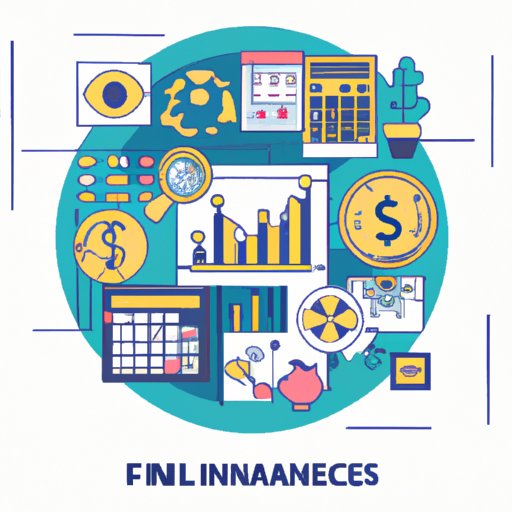Introduction
Financial intelligence is the ability to understand and make use of information related to managing your finances. It involves being knowledgeable about financial concepts and being able to apply them in order to make sound decisions about money. In today’s world, it is more important than ever to be financially literate and have a strong understanding of how to manage personal finances.
Research Financial Literacy Resources
The first step in gaining financial intelligence is to research financial literacy resources. There are numerous types of resources available, including books, articles, websites, podcasts, videos, and more. These resources can provide valuable information on topics such as budgeting, saving, investing, taxes, debt management, and more. Some resources may be free, while others may require a fee.
In addition to researching financial literacy resources, it is also important to access them. Many resources are available online and can be accessed from the comfort of your own home. Other resources may be available in libraries or bookstores. It is also possible to take courses or attend seminars and workshops to learn more about financial literacy.

Take Advantage of Financial Education Programs
Financial education programs are another great way to gain financial intelligence. These programs are typically offered by banks, credit unions, government agencies, and other organizations. They can provide valuable information on topics such as budgeting, saving, investing, and more. Some programs may even offer hands-on activities, such as simulated stock trading, to help participants understand and apply financial concepts.
When looking for financial education programs, it is important to consider the type of program that best fits your needs and interests. For example, some programs may focus on a specific topic, such as budgeting or investing, while others may provide a more comprehensive approach to financial education. Additionally, there may be programs for different age groups, such as teenagers or seniors. It is also important to consider the cost of the program and the time commitment required.
Implement a Budgeting System
Creating and following a budget is an essential part of financial intelligence. A budget helps you track your income and expenses so that you can make informed decisions about how to spend and save your money. Additionally, a budget can help you identify areas where you can cut back on spending and start saving more.
When creating a budget, it is important to be realistic. Start by listing all of your income sources and all of your fixed expenses. Then, list all of your variable expenses, such as groceries and entertainment. Finally, subtract your expenses from your income and set aside any remaining funds for savings. Once you have created your budget, it is important to stick to it and make adjustments as needed.
Track and Monitor Your Spending
Tracking and monitoring your spending is another key part of financial intelligence. By tracking your spending, you can get a better understanding of where your money is going and identify areas where you can make improvements. Additionally, tracking your spending can help you stay on top of your budget and ensure that you are not overspending.
There are several ways to track your spending. You can use a spreadsheet, an app, or even write down your expenses in a notebook. Whichever method you choose, it is important to be consistent and update your records regularly. Additionally, it is helpful to categorize your expenses to make it easier to identify patterns and make adjustments as needed.
Make Smart Investment Decisions
Making smart investment decisions is an important part of financial intelligence. Investing can be a great way to grow your wealth and prepare for the future, but it is important to understand the different types of investments and the associated risks. Additionally, it is important to learn investment strategies, such as diversification and asset allocation, to help minimize risk and maximize returns.
It is also important to remember that investing is not a get-rich-quick scheme. It is important to do your research and understand the potential risks before making any investment decisions. Additionally, it is important to consult with a financial advisor if you are unsure about any aspect of investing.
Conclusion
Gaining financial intelligence is essential for making sound decisions about money. This article explored different resources, programs, budgeting systems, and investment strategies to help you become financially savvy. By researching financial literacy resources, taking advantage of financial education programs, implementing a budgeting system, tracking and monitoring your spending, and making smart investment decisions, you can gain the financial intelligence necessary to make informed decisions about your finances.
(Note: Is this article not meeting your expectations? Do you have knowledge or insights to share? Unlock new opportunities and expand your reach by joining our authors team. Click Registration to join us and share your expertise with our readers.)
